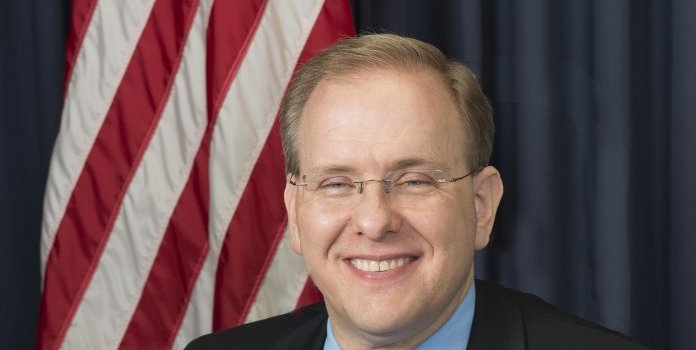Congressman Jim Langevin (D-RI) today introduced bipartisan legislation to protect adopted children from being “rehomed.” The bill was introduced following a roundtable discussion on adoption permanency, which Langevin hosted at Adoption Rhode Island with child welfare advocates and adoptive families last week. Congressman Tom Marino (R-PA) joined Langevin in introducing the bill.
The Safe Home Act would close a loophole in existing federal law by clarifying that the abandonment of an adopted child with a stranger, known as rehoming, is a form of child abuse. Reuters brought national attention to rehoming in 2013, when it published an investigative series on adoptive parents who use Internet forums to advertise children they wish to abandon. Transferring custody outside of legal adoption practices often places children at risk for neglect, exploitation, or even sexual abuse. However, state child welfare authorities have reported that they are unsure whether they can investigate rehoming cases because rehoming is not explicitly defined as a form of child abuse.
“Rehoming is a frightening phenomenon that is made all the more tragic when child welfare authorities are unable to intervene on an adopted child’s behalf,” said Congressman Langevin, co-chair of the Congressional Caucus on Foster Youth. “The Safe Home Act will clarify that rehoming is an abusive practice and will ensure our frontline child defenders have tools to keep adopted children safe and go after those who put them at risk.”
“Far too many adopted children are at risk of harm when there is a lack of clarity and consistency in investigative response to reports of suspected rehoming,” said Darlene Allen, Executive Director of Adoption Rhode Island, who participated in Langevin’s roundtable. “This legislation is critical to the protection of our children.”
“As the practice of rehoming has escalated, it’s become imperative that the federal government step in to take control of the situation,” said Maureen Flatley, national child welfare expert and participant in Langevin’s adoption roundtable. “Representative Langevin has long been at the forefront of this effort, and I applaud him for introducing this bill.”
“As the father of two adopted children I can think of nothing more important than making sure minors in the child welfare system are protected,” said Congressman Marino. “By classifying rehoming as a form of child abuse, The Safe Home Act gives our nation’s child welfare authorities what they need to investigate these cases. This is a common-sense piece of legislation and I look forward to working with my colleagues to move this bill forward.”
The Safe Home Act adds rehoming to the federal definition of child abuse and neglect under the Child Abuse Prevention and Treatment Act (CAPTA), reducing legal ambiguity and allowing states to use federal funds to counter the practice. The bill protects a parent’s ability to place their children with a trusted relative when appropriate but ensures they cannot transfer custody to a stranger without the oversight of the child welfare system. It was based in part on findings from members of the National Working Group on Unregulated Child Transfers (rehoming).
Earlier this Congress, Langevin introduced the Protecting Adopted Children Act and the Supporting Adopted Children and Families Act, legislation to prevent rehoming by increasing pre- and post-adoption services, including mental health services, to ensure families never reach a crisis point at which they feel they can no longer care for their adopted child.













